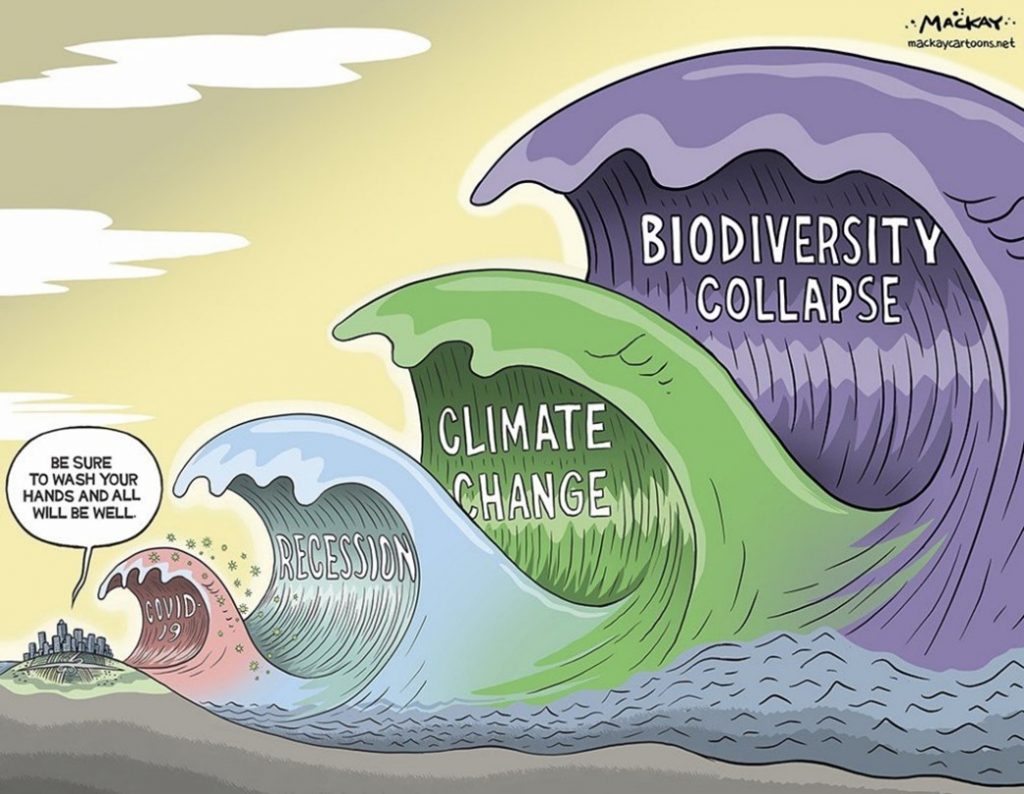Let’s talk about the birds and the bees
December 7, 2022

Why biodiversity is important for climate change mitigation
Record temperatures, an unprecedented number of wildfires in Southern Europe, rising numbers of heat-related deaths – this year’s Northern Hemisphere summer has highlighted the extreme impact climate change has on our lives and our planet.
And whilst trying to find a solution to this problem, we find ourselves in a chicken-and-egg situation, asking: is climate change driving biodiversity loss or is the loss of biodiversity driving climate change?
The extreme temperatures and ocean acidification* caused by climate change destroy ecosystems, and in turn, the loss of these ecosystems affects nature’s ability to regulate greenhouse gases. Hence, we cannot tackle climate change without also addressing biodiversity loss.
Our planet’s unique biodiversity provides humans with four important services, officially known as Ecosystem Services:
- Provisioning services: tangible products that we receive from nature – food, fresh water, materials such as wood or fibre, fuel, medicine, etc.
- Regulating services – services that help to balance natural processes such as water purification, decomposition, erosion and flood control, as well as carbon storage and climate regulation.
- Cultural services – non-material benefits that we gain from interacting with nature for aesthetic, spiritual, educational and recreational purposes.
- Supporting services – by supporting and regenerating themselves, ecosystems are able to provide us with all of the benefits listed above.
The tourism industry is clearly dependent on nature’s cultural services – a diving trip to Thailand, a safari in Kenya or a picturesque hike in Sweden wouldn’t be possible without healthy, thriving ecosystems. But, tourism is actually reliant on all four ecosystem services. Try offering hospitality services without food on the plate, a roof above the guests’ heads or fresh water for showering!

On top of these services, biodiversity actually helps to mitigate climate change. Terrestrial and marine ecosystems have the ability to remove carbon from the atmosphere and store it in carbon pools such as plants, roots and soil. Perhaps the best-known carbon pools are forests, with tree-planting initiatives being the preferred go-to solution to offset carbon emissions. However, coastal ecosystems such as mangroves and tidal marshes capture and store more carbon per unit area than forests, and seagrass meadows capture carbon up to 35 times faster than tropical rainforests! Whilst carbon storage characteristics vary between ecosystems and species, they are all impacted by human-related disturbances, which diminish their ability to capture carbon efficiently or can even turn them into a source of carbon emissions.
The biggest threat the hospitality industry poses in the fight against climate change is the overdevelopment of natural habitats and built infrastructure. To tackle both biodiversity loss and climate change, experts conclude that at least 30% of the planet must be kept in a natural state by 2030. To date, however, only an estimated 15% of the world’s land and 7% of the ocean are protected.
So, how can hospitality businesses play their part in protecting biodiversity?
- Have a green thumb – plant trees, shrubs and flowers on your property. If you don’t have a garden, think of green roofs or walls.
- Don’t interfere with nature – as an example, rewild parts of your garden or lawns, and don’t remove seagrass from the beach. What might look untended actually has a huge positive impact on local biodiversity. Messaging is key; by providing the right information to your guests, they will not only understand but most likely appreciate your initiatives.
- Be an ambassador – set up initiatives to protect biodiversity or promote those of other stakeholders in your local community. For example, don’t promote activities that impact negatively on nature, support local conservation groups and help raise awareness about the importance of biodiversity.
Learn more about the importance of biodiversity to the hospitality sector and steps you can take to become nature positive in the materials developed by the World Travel & Tourism Council HERE
Need support?
Considerate Group can help you assess your biodiversity protection and support you in implementing impactful actions! For more information, please contact info@considerategroup.com
*By absorbing carbon dioxide, the pH value of seawater falls, making the oceans more acidic. This change in pH has detrimental effects on marine life.


